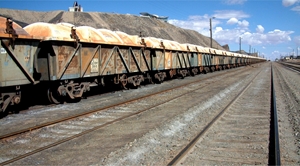The $6.4 billion Waratah Coal mine project has been approved in Galilee Basin, which should encourage increased opportunities for mining apprenticeships in Queensland.
Development works are due to begin on the Galilee Basin mining complex, which is expected to include four underground mines, two surface mines and all necessary coal-handling and processing facilities.
Early plans to build a thermal coal mine in the area were conditionally approved in August 2013, and now the 49 environmental guidelines have been officially laid out.
These conditions include annual contributions to conservation funds to offset damage done, and securing more than 10,000 hectares of protected land to support threatened species in the area.
“We have made it clear that we want to develop the Galilee Basin’s coal reserves but in a planned and orderly way as can be seen by the recent release of the Galilee Basin Development Strategy,” Minister for State Development, Infrastructure and Planning Jeff Seeney said in a December 14 media release.
The project is expected to create approximately 6,000 employment opportunities, including thousands of construction jobs during development of the mining infrastructure, transport options and expansion of the Abbot Point Port coal terminal.
Additionally, an estimated 1,700 construction jobs are expected to be created through the North Galilee Basin Rail Project, connecting the mines to Abbot Point Port via a 435km rail line.
“It won’t be taking jobs away from the rural community. It will be adding jobs to the rural community,” Waratah Coal Managing Director Nui Harris told ABC in a December 21 statement.
Once operational, the mine will produce an estimated 40 million tonnes of coal, which will be exported via the Abbot Point Port.
Local exploration efforts have identified more than 1,100 million tonnes of coal ore is present in Galilee Basin, with 3,684 million tonnes of Australia’s total mineral resources expected to reside in the area.
This huge reserve has inspired 3 million cubic metres of dredging to begin in an effort to prepare Abbot Point’s coal terminal for the increased export traffic.
The port expansion is expected to double the capacity of the coal terminal, making it one of the largest in the world.
Construction is forecast to last almost three years, with the mine becoming operational in 2016.
By Leanne De Toerkenczy

